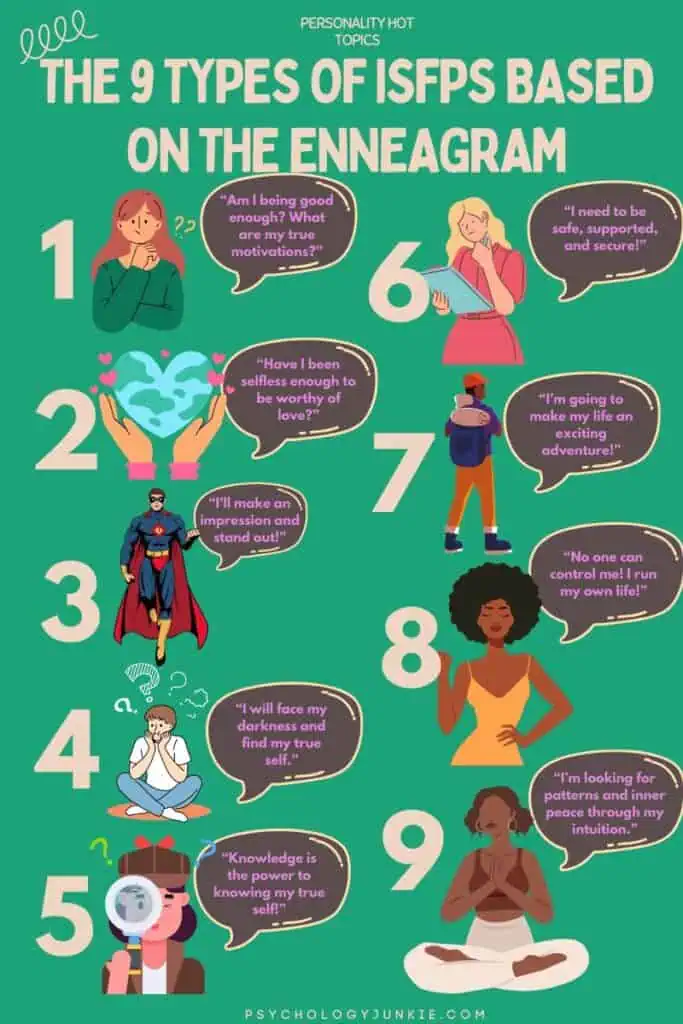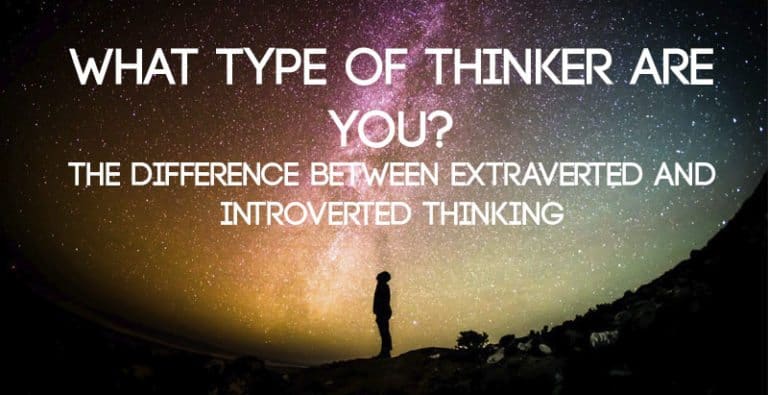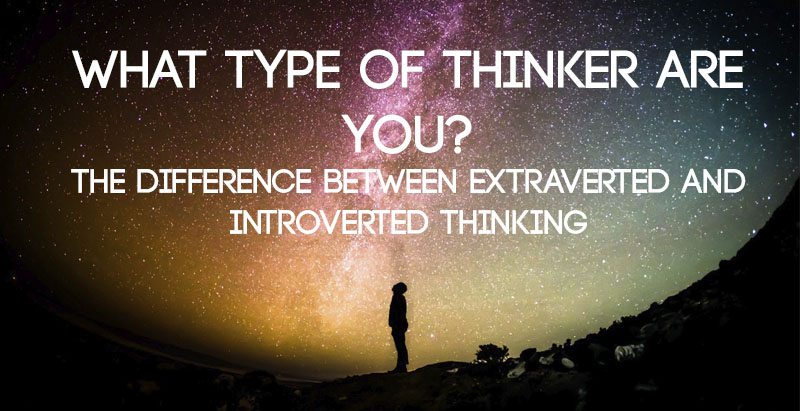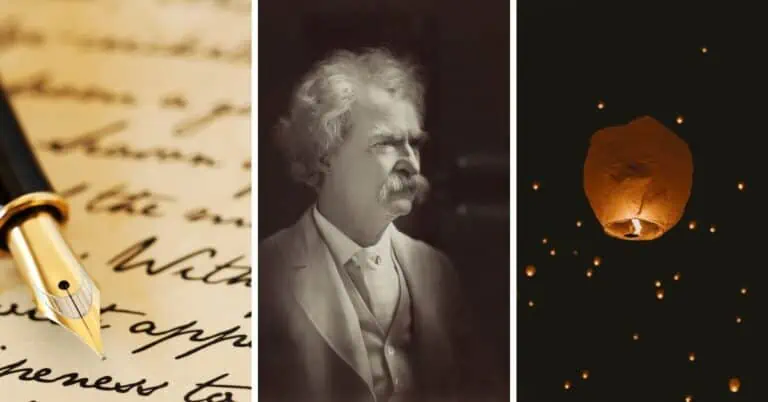The ISFP and the 9 Enneagram Types
So you’ve discovered that you’re an ISFP—the sensitive artist, the dreamer, the gentle soul of the Myers-Briggs® world. You’re quietly creative, deeply in touch with your feelings, and likely to disappear into the woods with a sketchpad if life gets too overwhelming. But wait. You still feel… different. Maybe you’re more driven than other ISFPs, or perhaps more social. What gives?
Enter the Enneagram: the personality system that doesn’t just stop at how you process information or make decisions. It digs deep into your fears, desires, and motivations. While Myers-Briggs® is a judgment-free framework for how we perceive and interact with the world, the Enneagram can feel like a therapist who knows all your secrets and isn’t afraid to tell you about them. Fun, right? (Or terrifying—let’s be honest.)

The Enneagram offers nine distinct types, each with its own flavor of quirks, strengths, and struggles. Pairing this with your ISFP tendencies can unlock a deeper understanding of why you think, feel, and act the way you do. It’s like adding a watercolor wash to the pencil sketch of your personality.
Today, we’re diving into how the nine Enneagram types might manifest in ISFPs. So grab a cup of tea, settle into your favorite cozy spot, and let’s explore what makes you, you.
Not sure what your Enneagram type is? Take our questionnaire here.
The ISFP and the 9 Enneagram Types

Table of contents
The ISFP 1 Enneagram Type
Core Fear: Being corrupt, evil, or defective
Core Desire: To be good and righteous
If you’re an ISFP One, you probably have a love-hate relationship with your inner critic. You’re the ISFP who doesn’t just stop to smell the roses—you also make sure you feel right about it ethically. While most ISFPs might wander through life with an easygoing, “live and let live” vibe, your One side insists there’s a right way to live. And you’re here to figure it out.
You’re deeply in touch with your Introverted Feeling (Fi) side, which means your sense of ethics and values runs deep. It’s not enough to be kind or creative; you want your actions to matter, to align with a higher standard. You’ll stay up late reworking a piece of art because it doesn’t “feel right,” or you’ll agonize over whether your good deed today was good enough.
At your best, you’re an inspiring mix of conscientiousness and artistry. You pair your natural ISFP creativity with a sense of purpose, creating beauty that also holds meaning. But when you’re not in a great place? You might feel tense, irritable, or overly judgmental—both of yourself and others. That soft, gentle ISFP demeanor can turn into a rigid need to “fix” everything that’s wrong with the world.
Childhood Wound:
As children, Ones often felt disconnected from the protective figure in their life. This could have been due to a parent who was abusive, distracted, overly strict, or even overly lenient. Some Ones grew up in environments where the “protector” figure seemed arbitrary or unreliable, leaving them with a sense that they had to take on the burden of being their own protector. They developed an inner critic to keep themselves on the “right path,” striving for perfection to avoid shame or criticism.
Unhealthy Ones Are Often: Judgmental, self-righteous, critical, and prone to perfectionism. They may feel overwhelmed by an unrelenting sense of failure.
Average Ones Are Often: Responsible, driven, organized, opinionated, and purposeful. They work hard but can be overly serious or irritable.
Healthy Ones Are Often: Grounded, wise, discerning, joyful, and accepting. They balance their high standards with kindness and playfulness.
Find out more about Ones: Escaping the Trap of Resentment for Enneagram 1s
The ISFP 2 Enneagram Type
Core Fear: Being unwanted or unloved
Core Desire: To feel loved and appreciated
ISFPs are naturally caring and sensitive, but when you add a Two core into the mix? You become the Mom Friend™ of every group. You’re the ISFP who remembers birthdays, shows up with soup when someone’s sick, and genuinely enjoys making people smile. You don’t just want to create beauty in the world—you want to make people feel it.
At your best, you’re warm, empathetic, and generous. You use your ISFP creativity to come up with thoughtful ways to brighten someone’s day, whether it’s crafting the perfect playlist or whipping up their favorite dessert. But here’s the catch: you need to feel appreciated for all you do. When people take your efforts for granted, it stings. And if you’re not careful, you might overextend yourself, thinking your worth is tied to how much you give.
Unhealthy Twos can become manipulative, giving to get or using their kindness as a way to control relationships. (Yikes.) But at your healthiest, you know that your value isn’t based on anyone else’s validation. You give because it’s who you are—not because you’re trying to prove your worth.
Childhood Wound:
As children, Twos often believed that they needed to earn love through selflessness and care. Many Twos grew up repressing their own needs to focus on others, hoping to feel wanted and valued by being indispensable.
Unhealthy Twos Are Often: Needy, people-pleasing, manipulative, and resentful when their efforts go unnoticed.
Average Twos Are Often: Warm, giving, friendly, and eager to be needed, but can sometimes overdo it.
Healthy Twos Are Often: Compassionate, self-aware, humble, and generous, giving without strings attached.
Discover more about Twos: The Enneagram 2 and Stress
The ISFP 3 Enneagram Type
Core Fear: Being worthless or a failure
Core Desire: To be valuable and successful
If you’re an ISFP Three, you bring a dash of ambition to your sensitive, free-spirited nature. You’re the ISFP who doesn’t just want to paint a beautiful picture—you want it displayed in a gallery, praised by critics, and shared on every art blog imaginable. You’re still deeply connected to your personal values and creativity, but there’s a drive for recognition that gives you an edge.
At your best, you’re an inspiring combination of authenticity and achievement. You use your natural ISFP creativity and emotional insight to connect with others while also pursuing meaningful goals. But when you’re not at your best? You might feel like you’re constantly chasing success, using your accomplishments as a shield against feelings of inadequacy. There’s a danger of losing touch with your Fi (Introverted Feeling) values and focusing too much on external validation.
You probably have an incredible knack for adapting to different environments, charming people, and achieving your goals. But it’s important to remember: you’re worthy just as you are—no trophy, applause, or gold star needed.
Childhood Wound:
As children, Threes often felt deeply connected to the nurturing figure in their life, but with an unspoken condition: love was tied to achievement. Whether it was winning a trophy, getting good grades, or simply being the “good kid,” they internalized the belief that their worth depended on how well they performed. This instilled a lifelong need to prove themselves through accomplishments, often at the expense of their true selves.
Unhealthy Threes Are Often: Image-conscious, insecure, deceitful, and overly focused on external success.
Average Threes Are Often: Driven, ambitious, charming, adaptable, and goal-oriented, but sometimes disconnected from their true self.
Healthy Threes Are Often: Authentic, inspiring, confident, and able to balance ambition with integrity, using their talents to uplift others.
Find out more about Threes: 10 Telltale Signs of an Unhealthy Enneagram 3
The ISFP 4 Enneagram Type
Core Fear: Being insignificant or without identity
Core Desire: To find themselves and their significance
If you’re an ISFP Four, you’ve likely been described as “deep” more times than you can count. You’re the ISFP who doesn’t just enjoy art—you are art. Life is about finding meaning, expressing your unique essence, and connecting with the profound beauty (and tragedy) of the world. You feel everything deeply—the joy, the pain, and everything in between.
While many ISFPs are naturally introspective, your Four tendencies amplify this to another level. You’re not afraid to explore the darker corners of your emotions, and you probably have a creative outlet that helps you process your feelings. Whether it’s writing poetry, composing music, or curating the perfect playlist for a rainy afternoon, you find ways to make your emotions tangible.
At your best, you’re deeply authentic, empathetic, and creative, with a unique ability to help others feel seen and understood. But when you’re struggling? You might feel overwhelmed by feelings of inadequacy or a sense that something is always missing. It’s easy to fall into comparison traps, believing everyone else has something you lack. (Spoiler alert: they don’t. You’re enough, just as you are.)
Childhood Wound:
As children, Fours often felt disconnected from both parental figures. Whether through neglect, misunderstanding, or a sense of “otherness,” they grew up believing they were fundamentally different from those around them. To cope, they focused on what made them unique, creating an identity centered around their individuality. While this helped them navigate feelings of rejection, it also reinforced a sense of separateness and longing for connection.
Unhealthy Fours Are Often: Melancholy, self-absorbed, dramatic, and envious, with a tendency to fixate on their perceived flaws.
Average Fours Are Often: Creative, introspective, sensitive, and longing for authenticity, but prone to mood swings and self-doubt.
Healthy Fours Are Often: Emotionally grounded, compassionate, intuitive, and grateful, embracing both their uniqueness and their connection to others.
Find out more about Fours: The Enneagram 4 Individualist
The ISFP 5 Enneagram Type
Core Fear: Being helpless or incapable
Core Desire: To be competent and capable
If you’re an ISFP Five, you’re the quiet observer with a thirst for knowledge. While most ISFPs are known for their emotional depth and love of hands-on experiences, your Five tendencies add a layer of intellectual curiosity and independence. You’re the ISFP who’s just as likely to get lost in a fascinating book as in the woods.
You value your time and energy fiercely, preferring to focus on things that truly matter to you. Socializing can be fun (in small doses), but you probably find deep conversations or solitary reflection more fulfilling. You’re not just creating art or music for the sake of it—you’re delving into the “why” and “how” behind it all.
At your best, you’re insightful, thoughtful, and curious, combining your ISFP creativity with a thirst for understanding. But when you’re not doing so great? You might withdraw from the world, hoarding your time and energy to the point of isolation. There’s a risk of becoming so focused on acquiring knowledge that you lose touch with your feelings and relationships.
Childhood Wound:
As children, Fives often felt ambivalent toward both parental figures. They may have felt misunderstood, excluded, or like “odd ducks” within their families. To cope, they retreated into their own minds, seeking solace in knowledge or hobbies that gave them a sense of control and competence. This tendency to withdraw created a pattern of self-sufficiency but also a fear of being overwhelmed by the demands of others.
Unhealthy Fives Are Often: Isolated, distrustful, eccentric, and overly detached, struggling to connect with their emotions.
Average Fives Are Often: Curious, independent, analytical, and private, but can be overly self-contained and hesitant to engage.
Healthy Fives Are Often: Insightful, wise, balanced, and original, blending their intellectual depth with emotional connection and action.
Discover more about Fives: The Enneagram 5 Investigator
The ISFP 6 Enneagram Type
Core Fear: Being without support or guidance
Core Desire: To feel secure and supported
If you’re an ISFP Six, you bring a cautious and protective streak to your typically free-spirited ISFP nature. You’re the kind of ISFP who loves a spontaneous adventure, but you’ve probably double-checked the map, packed a first-aid kit, and made sure your phone is fully charged—just in case. Your Six tendencies mean you’re always thinking ahead, balancing your creative and empathetic side with a sharp eye for potential risks.
At your best, you’re loyal, responsible, and deeply caring. You use your ISFP sensitivity to protect and nurture the people you love, creating a safe space for them to thrive. But when you’re not in a great place, you might find yourself overwhelmed by anxiety, second-guessing your decisions, and playing out every worst-case scenario in your head. (Spoiler: 98% of those scenarios will never happen. But hey, you like to be prepared!)
Your Introverted Feeling (Fi) is still a core part of who you are, so your loyalty is rooted in your values. You don’t just support others because it’s expected; you do it because it aligns with your deep sense of care and responsibility. When you find your balance, you’re the ultimate steady rock in a chaotic world.
Childhood Wound:
As children, Sixes often felt a mix of trust and doubt toward the protective figure in their lives. This figure may have been inconsistent, overbearing, or even absent at times, leading the Six to feel torn between reliance and skepticism. They learned to seek external support and guidance while also doubting its reliability, creating an inner struggle between trust and fear.
Unhealthy Sixes Are Often: Paranoid, anxious, indecisive, and overly dependent on others for reassurance.
Average Sixes Are Often: Loyal, reliable, cautious, skeptical, and focused on security but prone to self-doubt.
Healthy Sixes Are Often: Courageous, trusting, grounded, and able to balance caution with confidence, offering stability and support to those around them.
Find out more about Sixes: The Stressed Enneagram 6: Navigating Anxiety and Finding Stability
The ISFP 7 Enneagram Type
Core Fear: Being deprived or in pain
Core Desire: To be happy, satisfied, and fulfilled
If you’re an ISFP Seven, you’re a ray of sunshine with a penchant for meaning and beauty. You’re the ISFP who’s always looking for the next adventure, the next thrill, the next way to soak up life’s beauty and excitement. You probably have a hard time sitting still because there’s just so much to see, do, and experience! Your Seven tendencies amplify your natural ISFP love for sensory exploration, making you the ultimate fun-seeker.
At your best, you’re inspiringly optimistic and full of creative energy. You bring joy to others through your zest for life and your ability to find beauty in unexpected places. But when you’re struggling, you might find yourself bouncing from one distraction to the next, avoiding anything that feels too heavy or limiting. It’s easy for you to lose touch with your Introverted Feeling (Fi), which grounds you in your values, and instead focus on chasing pleasure or avoiding discomfort.
You have an incredible ability to reframe challenges into opportunities, but it’s important to remember that true fulfillment often comes from staying present, even when things aren’t perfect. (I know, boring. But it’s true.)
Childhood Wound:
As children, Sevens often felt disconnected from the nurturing figure in their lives. This could have been due to inconsistency, neglect, or simply the perception that their needs weren’t fully met. To cope, Sevens learned to focus on excitement and possibilities, finding comfort in distractions and activities that filled the emotional void.
Unhealthy Sevens Are Often: Escapist, impulsive, restless, and overly focused on avoiding pain, leading to feelings of emptiness.
Average Sevens Are Often: Enthusiastic, imaginative, adventurous, and playful, but prone to overcommitment and distraction.
Healthy Sevens Are Often: Joyful, grounded, satisfied, and able to balance their love for adventure with presence and depth, bringing energy and optimism to those around them.
The ISFP 8 Enneagram Type
Core Fear: Being weak or controlled
Core Desire: To protect themselves and determine their own path
If you’re an ISFP Eight, you’re the ISFP who isn’t afraid to take charge. While most ISFPs are known for their gentle, go-with-the-flow demeanor, your Eight side adds a bold, assertive streak. You’re passionate about standing up for yourself and others, and you’re not one to back down from a challenge. Whether it’s protecting a loved one or fighting for a cause you believe in, you bring a fierce, fiery energy to the table.
At your best, you’re a confident, compassionate leader who uses your strength to uplift others. Your Introverted Feeling (Fi) ensures that your assertiveness is rooted in deep values, and you’re willing to go to great lengths to defend what matters most to you. But when you’re not in a great place, you might come across as intimidating, cold, or domineering, using your strength as a shield against vulnerability.
You have a powerful presence that inspires others, but don’t forget to let your softer side shine through. Vulnerability isn’t weakness—it’s part of what makes you so authentically you.
Childhood Wound:
As children, Eights often felt ambivalent toward the nurturing figure in their lives. They may have felt the need to take on a strong, independent role early on, suppressing vulnerability to avoid rejection or betrayal. This led them to develop a tough exterior and a determination to rely only on themselves.
Unhealthy Eights Are Often: Aggressive, controlling, domineering, and quick to anger, using power to mask vulnerability.
Average Eights Are Often: Assertive, protective, resourceful, and confident, but sometimes overly confrontational or defensive.
Healthy Eights Are Often: Compassionate, grounded, decisive, and able to balance strength with vulnerability, using their power to protect and empower others.
The ISFP 9 Enneagram Type
Core Fear: Fragmentation, separation, or loss
Core Desire: To have inner peace and harmony
If you’re an ISFP Nine, you’re the ultimate peacemaker. You’re the ISFP who radiates calm and warmth, making everyone feel like they belong. Conflict? Not your thing. You’re more likely to diffuse tension with a kind word or a well-timed joke than to jump into an argument. You love creating a harmonious atmosphere, whether that’s through your creativity, your insights, or simply by delighting in the joy of the moment.
At your best, you’re an empathetic, grounding presence, helping others find balance while staying true to your own gentle, creative spirit. You blend your ISFP creativity with a deep desire to connect and unify. But when you’re not in a great place, you might find yourself suppressing your own needs to keep the peace. You go with the flow, even when that flow is dragging you away from what you truly want. Over time, this can lead to feelings of being overlooked or disconnected from your own identity.
It’s important for you to remember that your voice matters, too. You don’t have to keep the peace at the expense of your own happiness or growth. Sometimes, a little conflict is necessary to build the harmony you crave.
Childhood Wound:
As children, Nines often felt overly connected to both parental figures, absorbing their emotions and conflicts as their own. In households with turmoil or tension, Nines coped by tuning out the negativity and retreating into their imaginations. They learned to prioritize the needs and feelings of others over their own, believing this was the key to keeping the peace and staying connected.
Unhealthy Nines Are Often: Passive, avoidant, indecisive, and disconnected from their own desires, relying on distractions to numb discomfort.
Average Nines Are Often: Laid-back, accommodating, optimistic, and go-with-the-flow, but prone to self-neglect and complacency.
Healthy Nines Are Often: Grounded, self-aware, inclusive, and kind, able to assert their needs calmly while fostering harmony in their environment.
Discover more about Nines: 21 Signs That You’re an Enneagram 9 “Peacemaker”
What Do You Think?
Do you recognize yourself in one of these ISFP Enneagram pairings? Maybe you saw your inner Nine’s quest for harmony or your Four’s longing for significance reflected here. Either way, we’d love to hear from you!
Leave a comment below and let us know your Enneagram type—or just share your thoughts about how these descriptions resonated with you. Your insight could help someone else on their journey to self-discovery!














